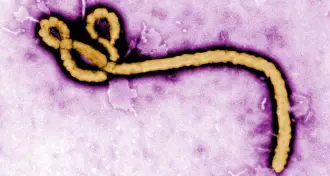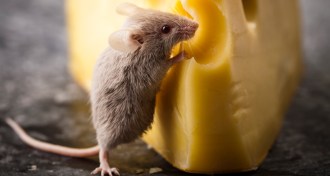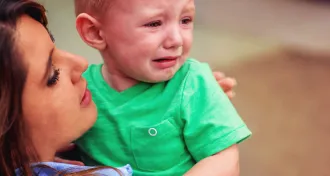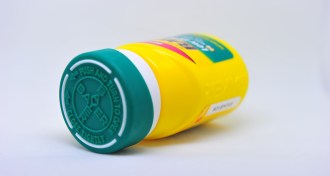Humans
Sign up for our newsletter
We summarize the week's scientific breakthroughs every Thursday.
-
 Health & Medicine
Health & MedicineEbola vaccine shows no major side effects in small study
An experimental vaccine against Ebola virus has tested well in people, researchers report.
-
 Health & Medicine
Health & MedicineTurning the immune system on cancer
A new class of drugs uncloaks tumors in some patients, awakening home-grown cells to fight several cancer types.
By Nathan Seppa -
 Archaeology
ArchaeologyGolden Fleece myth was based on real events, geologists contend
Jason’s legend grew out of long-distance trade with people who used sheepskins to collect gold.
By Bruce Bower -
 Humans
HumansBreakfast in the classroom boosts school attendance
Schools that serve breakfast in the classroom have slightly better attendance than schools that only offer the meal in the cafeteria.
-
 Health & Medicine
Health & MedicineAdd high-fat diet to the ‘don’t’ list for pregnant moms
There’s always controversy over what to eat while pregnant. Four animal studies at this year’s Society for Neuroscience meeting bring together negative effects of high-fat diets.
-
 Archaeology
ArchaeologyBarley elevated Central Asian farmers to ‘the roof of the world’
Hardy western crops allowed villagers to settle in the cold, thin air atop the Tibetan Plateau.
By Bruce Bower -
 Health & Medicine
Health & MedicineThe kids will be all right
Children are generally as resilient as adults when it comes to acute trauma, and studies suggest that a little stress and exercise might help kids cope with disasters.
-
 Life
LifeNorovirus can play protective role in mice
In mice, viral infection can help intestines develop, strengthen immune system.
-
 Health & Medicine
Health & MedicineAspirin’s heart benefits not a slam dunk
No survival gain found in people age 60 and over who took daily dose of aspirin.
By Nathan Seppa -
 Psychology
PsychologyRight questions could help spot devious air passengers
Training airport security agents to ask detail-oriented questions of travelers may help unmask liars.
By Bruce Bower -
 Archaeology
ArchaeologyFeedback
Readers ask questions about a study on sweeteners, how scientists recognize primitive tools and the purpose of a dinosaur's sail.
-
 Psychology
PsychologyRigors of Mars trip make teamwork a priority
It’s going to take a different kind of mental approach to travel to Mars and back: less individuality, more collaboration and adaptability. Astronauts are being tested to prepare for such a mission.
By Bruce Bower